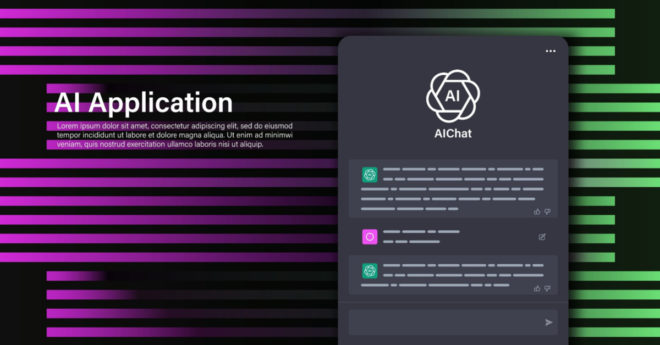The rise of artificial intelligence (AI) created a wave of concerns about safety and privacy, particularly as these technologies become more advanced and integrated into our daily lives. One of the most prominent examples of AI technology is ChatGPT, an artificial intelligence language model which was created by OpenAI and is backed by Microsoft. Millions of people have used ChatGPT since it launched in November 2022.
In recent days, searches for “is ChatGPT safe?” have skyrocketed as people around the world voice their concerns about the potential risks associated with this technology.
According to data from Google Trends, searches for “is ChatGPT safe?” have increased by a massive 614% since March 16th. The data was discovered by Cryptomaniaks.com, a leading crypto education platform that is dedicated to helping newcomers and cryptocurrency beginners understand the world of blockchain and cryptocurrency.
The surge in searches for information about ChatGPT safety highlights the need for greater public education and transparency around AI systems and their potential risks. As AI technology like ChatGPT continues to advance and integrate into our daily lives, it is essential to address the safety concerns that are emerging, as there could be potential dangers associated with using ChatGPT or any other AI chatbot.
ChatGPT is designed to assist users in generating human-like responses to their queries and engaging in conversation. So, privacy concerns are one of the most significant risks associated with using ChatGPT. When users interact with ChatGPT, they may inadvertently share personal information about themselves, such as their name, location, and other sensitive data. This information could be vulnerable to hacking or other forms of cyber-attacks.
Another concern is the potential for misinformation. ChatGPT is programmed to generate responses based on the input it receives from users. If the input is incorrect or misleading, the AI may generate inaccurate or misleading responses. Furthermore, AI models can perpetuate biases and stereotypes present in the data they are trained on. If the data used to train ChatGPT includes biased or prejudiced language, the AI may generate responses that perpetuate those biases.
Unlike other AI assistants like Siri or Alexa, ChatGPT doesn’t use the internet to find answers. Instead, it generates responses based on the patterns and associations it has learned from the vast amount of text it was trained on. It constructs a sentence word by word, selecting the most likely one, based on its deep learning techniques, specifically a neural network architecture called a transformer, to process and generate language.
ChatGPT is pre-trained on a vast amount of text data, including books, websites, and other online content. When a user enters a prompt or question, the model uses its understanding of language and its knowledge of the context of the prompt to generate a response. And It finally arrives at an answer by making a series of guesses, which is part of the reason why it can give you wrong answers.
If ChatGPT is trained on the collective writing of humans across the world, and continues to do so as it is being used by humans, those same biases that exist in the real world can also appear in the model. At the same time, this new and advanced chatbot is excellent at explaining complex concepts, making it a very useful and powerful tool for learning, but it’s important not to believe everything it says. ChatGPT certainly isn’t always correct, well, at least, not yet.
Despite these risks, AI technology like ChatGPT holds immense potential for revolutionizing various industries, including blockchain. The use of AI in blockchain technology has been gaining traction, particularly in areas like fraud detection, supply chain management, and smart contracts. New AI driven bots such as ChainGPT, can help new blockchain businesses speed-up in their development process.
However, it is essential to strike a balance between innovation and safety. Developers, users, and regulators must work together to create guidelines that ensure the responsible development and deployment of AI technology.
In recent news, Italy has become the first Western country to block advanced chatbot ChatGPT. The Italian data-protection authority expressed privacy concerns related to the model. The regulator said it would ban and investigate OpenAI “with immediate effect.”
Microsoft has spent billions of dollars on it and added the AI chat tool to Bing last month. It has also said that it is planning to embed a version of the technology in its Office apps, including Word, Excel, PowerPoint, and Outlook.
At the same time, more than 1,000 artificial intelligence experts, researchers and backers have joined a call for an immediate pause on the creation of AI’s for at least six months, so the capabilities and dangers of systems such as GPT-4 ca be properly studied.
The demand is made in an open letter signed by major AI players including: Elon Musk, who co-founded OpenAI, the research lab responsible for ChatGPT and GPT-4; Emad Mostaque, who founded London-based Stability AI; and Steve Wozniak, the co-founder of Apple.
The open letter expressed concerns over being able to control what cannot be fully understood:
“Recent months have seen AI labs locked in an out-of-control race to develop and deploy ever more powerful digital minds that no one – not even their creators – can understand, predict, or reliably control. Powerful AI systems should be developed only once we are confident that their effects will be positive and their risks will be manageable.”
The call for an immediate pause on the creation of AI’s demonstrates the need to study the capabilities and dangers of systems such as ChatGPT and GPT-4. As AI technology continues to advance and integrate into our daily lives, addressing safety concerns and ensuring responsible development and deployment of AI is crucial.



